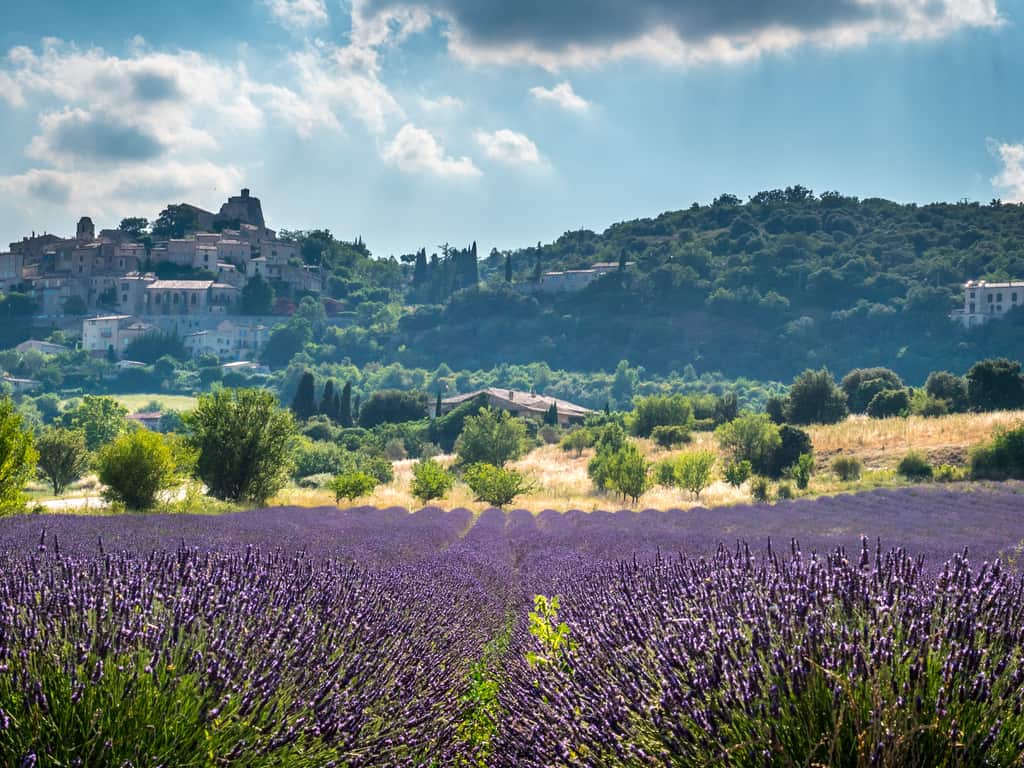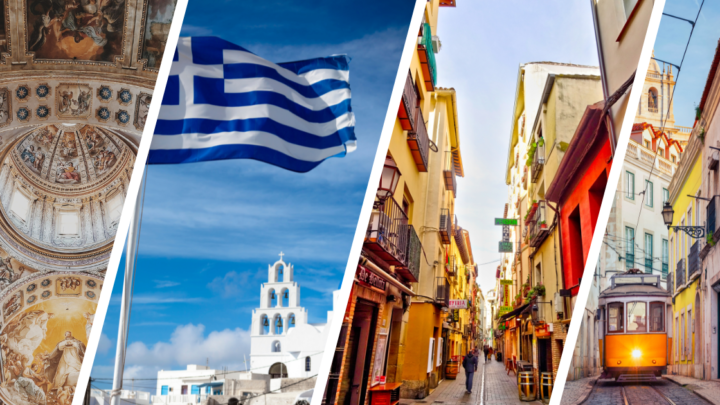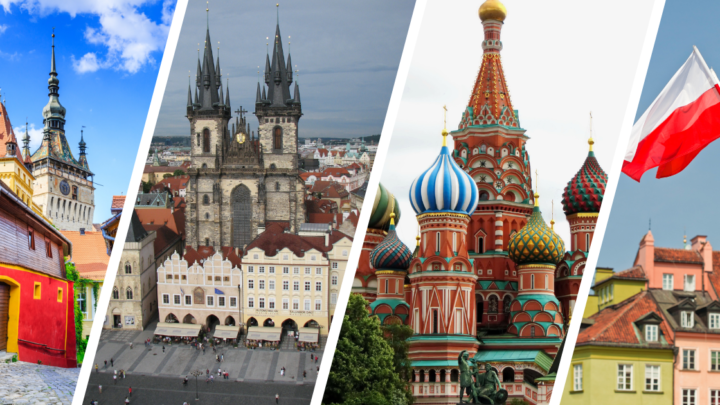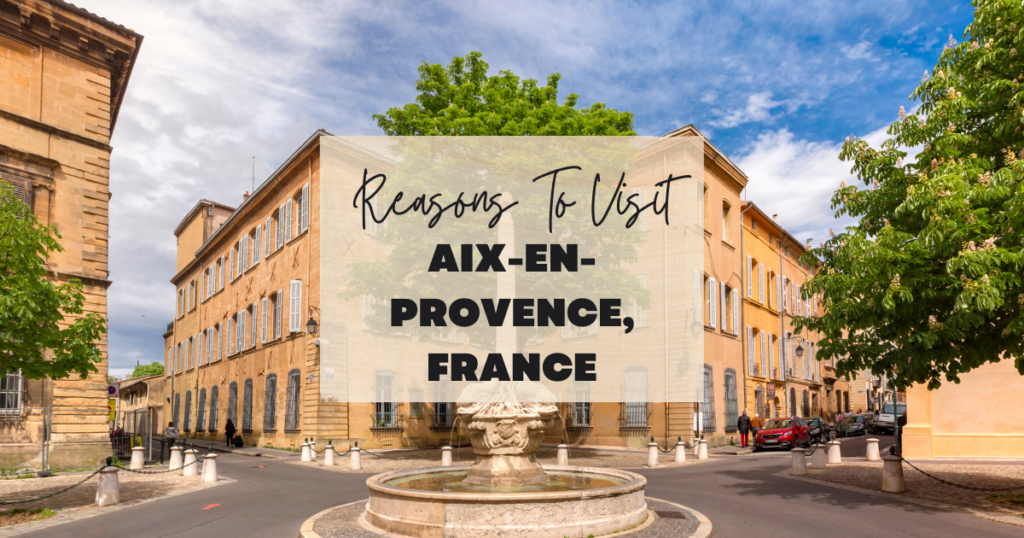Organizing a trip to Aix-en-Provence, France, right now? Get the most out of your vacation by exploring the best things to do in Aix-en-Provence, France, and the best places to visit in Aix-en-Provence, France, below. Wondrous Drifter is a Web 3 travel company that aspires to disrupt the travel industry.
Table Of Content
- Atelier Cézanne
- Camp des Milles
- Carrièrs De Bibemus
- Cathédrale Saint-Sauveur d’Aix-en-Provence
- Caumont Centre d’Art
- Château La Coste
- Église Saint-Jean-de-Malte
- Le Cours Mirabeau
- Le Grand Marché
- Montagne Sainte-Victoire
- Musée du Calisson
- Musée Estienne de Saint Jean
- Musée Granet
- Musée des Tapisseries
- Passage Agard
- Pavillon de Vendôme
- Place de l’Hôtel de Ville
- Terrain Des Peintres
- Vasarely Foundation
- Vieil Aix
- Quartier Mazarin
- Explore Europe
Atelier Cézanne

See where Paul Cézanne’s creativity took shape.
Because he was a native of the area, famous 19th-century post-impressionist painter Paul Cézanne lived and worked in Aix en Provence, a source of pride for the city today.
Paul Cézanne’s studio, surrounded by olive groves and fig orchards on Lauves Hill, is where he worked for the last four years of his life.
It’s approximately 15 minutes on foot from the center.
He’d walk from his home on Rue Boulegon out to this studio, which had been custom-built to the artist’s specifications.
The location hasn’t been touched since his death 110 years ago, so it’s a setting where fans of his work can practically sense his presence.
Moreover, his smock is still smeared with paint, and things from his craft are scattered about this tiny room.
The Atelier de Cézanne is one of the best sites in Aix-en-Provence to see the environment that inspired the “Father of Modern Painting.”
Furthermore, there are audio guides in many languages, and guided tours in either English or French are available for anyone interested in learning more about Cézanne and his work.
Lastly, check out the souvenir shop and a café that sells coffee and refreshments at the location.
Learn more about Paul Cézanne and his craft now at Atelier Cézanne.
Address: 9 Av. Paul Cézanne, 13100 Aix-en-Provence, France
Camp des Milles
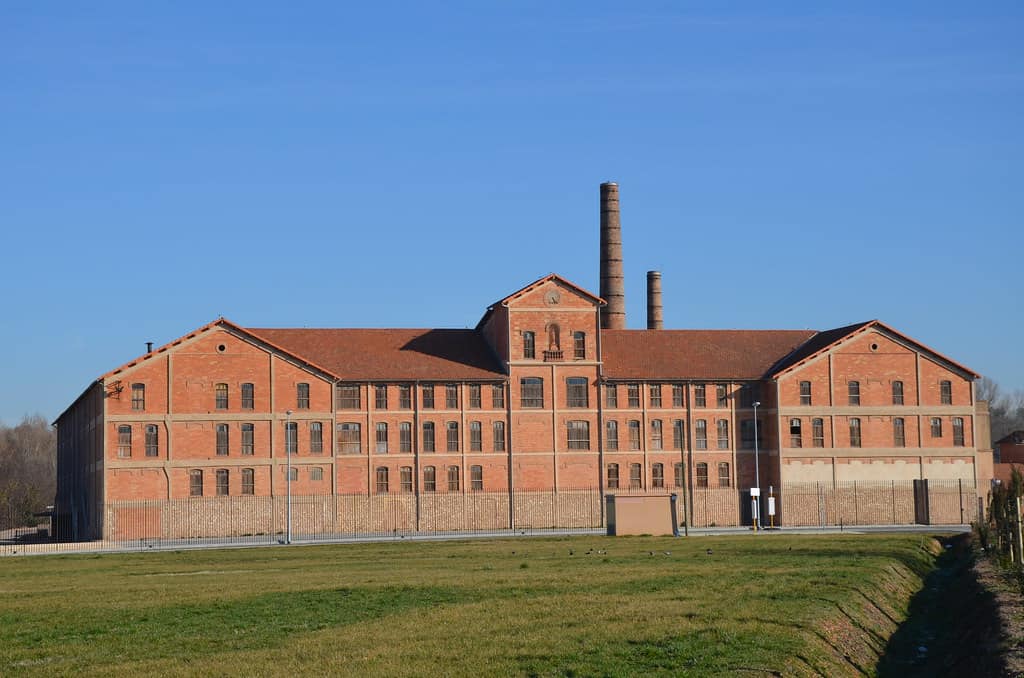
A link between the past and present.
This factory, now a memorial, was previously a Vichy government concentration camp for artists.
Fleeing Nazi oppression, many of the internees were well-known German artists, singers, and intellectuals who had been persecuted during Hitler’s reign and sought refuge in France.
Along with dozens of sculptors, playwrights, architects, and novelists, renowned Dadaist painter Max Ernst and surrealist photographer Hans Bellmer were held captive.
After the surrender, the French government remained in power, but Germany dominated the north and east.
Administratively, the country was divided, with Germany controlling the east and north.
As a result, the plant became a terrifying waypoint for prisoners on their route to concentration camps like Auschwitz.
After Germany invaded France in the year 1942, the camp was shut down and converted into a factory for mutiny.
It was turned back to its original use after the war, making red roof tiles for Provence until it was closed.
After being abandoned for many years, the prison camp has been meticulously kept as a permanent reminder of the events that occurred there.
It is one of the few remaining intact internment camps in France, thanks to a 30-year battle to preserve it.
Visit the Camps des Milles, now a memorial of once what happened.
Carrièrs De Bibemus

The place where cubisim was born.
Carrièrs De Bibemus is a 7-hectare rocky plateau: an active quarry for Aix monuments until the eighteenth century.
Cezanne comes upon the location in a state of neglect: the flora has taken over, yet the ocher rock has retained the shape of men’s labor.
Between 1895 and 1904, the artist creates world-renowned works such as “The Red Rock” in the spectacular architecture of this unique natural setting.
Bibemus quarries, located amid the Grand Site Sainte-Victoire, are now open to the public by a paved walkway that circles the shed where the artist stored his works and occasionally slept.
Around Cezanne’s shed, a well-kept trail in the shadow of towering pines will lead you to discover Cezanne’s motifs and the plateau’s geology.
Additionally, you’ll be able to see the stones that were mined for the construction of the Aix monuments from ancient times to the eighteenth century.
In this landscape where mineral and vegetal are complementary, Cezanne produced 11 oil colors and 16 watercolors.
Overall, Cezanne’s quarries are open to the public and can be visited.
Check out a place that has inspired world-class art now.
Address: 3080 Chem. de Bibémus, 13100 Aix-en-Provence, France
Cathédrale Saint-Sauveur d’Aix-en-Provence

The masterpiece of the Aix-en-Provance.
The Saint-Savior Cathedral or the Aix Cathedral is a remarkable structure.
It was constructed over a long period, from the fifth to the seventeenth centuries.
The facade, which includes Roman, Romanesque, and Gothic components, demonstrates the mix of architectural styles.
The peaceful grandeur of the Baptistery Rotunda from the early Christian (Merovingian) era awes tourists as they enter the Romanesque gateway.
The cathedral’s three naves which are Baroque, Gothic, and Romanesque, demonstrate the cathedral’s architectural continuity through the centuries.
A famous 15th-century Burning Bush triptych painted by Nicolas Froment hangs on the right side of the central nave.
Also, a portrait of Good King René made between 1434 and 1480 can be found by exploring the left wing.
The Romanesque cloister of the church is a must-see for visitors. This lovely location exudes tranquility, encouraging spiritual reflection.
See the beauty of the Aix Cathedral now when you visit Aix-en-Provance.
Address: 34 Pl. des Martyrs de la Resistance, 13100 Aix-en-Provence, France
Caumont Centre d’Art
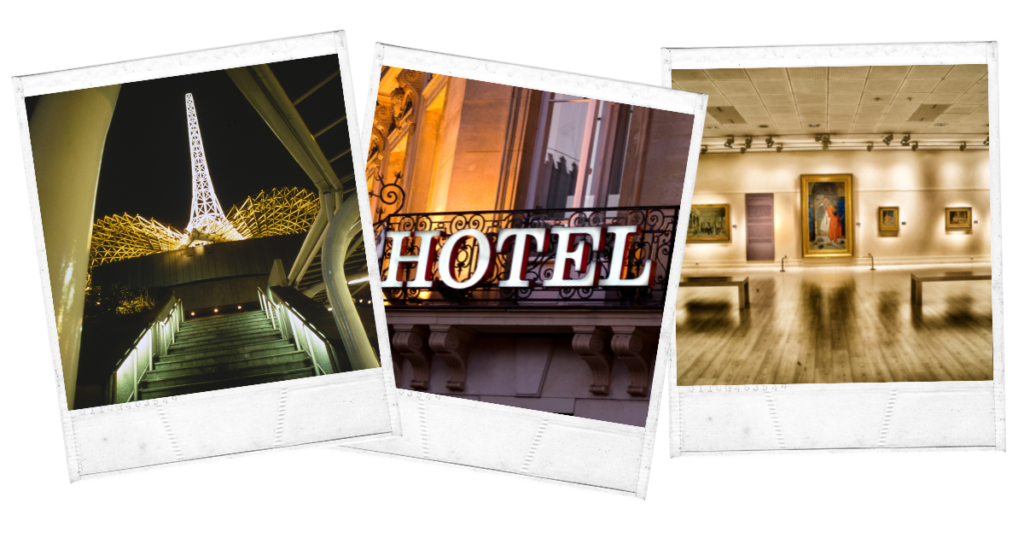
Visit one of Aix-en-Provence’s most exquisite private residences, dating back to the 18th century.
The Hôtel de Caumont, an opulent 18th century hôtel particulier in Aix’s ancient and aristocratic Mazarin Quarter, has been transformed into a lavish new gallery space known as the Caumont Centre d’Art.
In 1715, the first stone was set in this location. It was to become one of Aix’s largest and most opulent bourgeois residences.
Visitors can find two annual exhibitions dedicated to renowned masters of the past and modern artists at Cours Mirabeau.
Daily screening of a film about Cézanne’s time in Aix and concerts and seminars will round out the Hôtel de Caumont’s programming.
It aspires to establish itself as a significant cultural hub in Aix: a place where all can passionately explore and exchange art.
The Caumont Centre d’Art, on the other hand, is much more than a gallery.
The house itself has been beautifully preserved, and it is one of the few public 18th-century hôtels particuliers in town.
It also features vast and gorgeous formal French gardens on two floors, which is unique for a private property in the middle of Aix.
There is an auditorium and many rococo-style tea rooms that transform into a bar in the evenings, long after the period rooms and galleries have closed.
See this beautiful residence now on your next visit to Aix-en-Provance.
Address: 3 Rue Joseph Cabassol, 13100 Aix-en-Provence, France
Château La Coste

From Aix-en-Provence, a 12-mile meandering rural route between pine and cypress forests and marshland leads to this little slice of heaven.
The complex, Château La Costea, is a stunning V-shaped edifice with geometric lines and a smooth, silky concrete façade that sits triumphantly in the center.
When Irish estate entrepreneur Patrick McKillen, who made his fortune in hotels, bought Garden of Eden in 2004, he was the first and foremost interested in the wine.
With this, he broadened the range of offerings by committing half of the 570-acre property to organic red and white winemaking.
Moreover, visitors can try them in the shade of the plane trees or under the Daniel Buren-designed pergola at one of the two gourmet restaurants.
Leading names in world architecture, including Tadao Ando, Renzo Piano, Richard Rogers (all Pritzker Prize winners), and Louis Benech, renowned landscape architect, all of there works are on the hills around Europe’s largest open-air art complex.
Truly, you can enjoy wine, art, and architecture here!
Have a fantastic time when you visit Château La Coste.
Address: 2750 Route de la ciride 13610 le puy-saint-reparde
Église Saint-Jean-de-Malte

The Knights of Saint-John of Jerusalem gave the fortified chapel its name.
Église Saint-Jean-de-Malte was the first Gothic structure in Provence, built outside the walls in the 13th century.
It used to have side chapels where the Counts of Provence were buried.
Being the first Roman Catholic church in a region where over half of the Catholic population is a tremendous honor.
The arrow-shaped bell tower of l’Église Saint-Jean-de-Malte, completed in 1376, is one of the first things you’ll notice.
Its’ Aix’s highest point, standing at 67 meters.
The Archbishop of Aix, Monsignor Charles Provenchères, was entrusted to this parish in 1977. A brotherhood of apostolic monks now leads the church.
The Granet Museum, previously the Priory, is well worth visiting for its unique paintings.
Check out Aix-en-Provance’s “Church of firsts” now.
Address: 24 Rue d’Italie, 13100 Aix-en-Provence, France
Le Cours Mirabeau
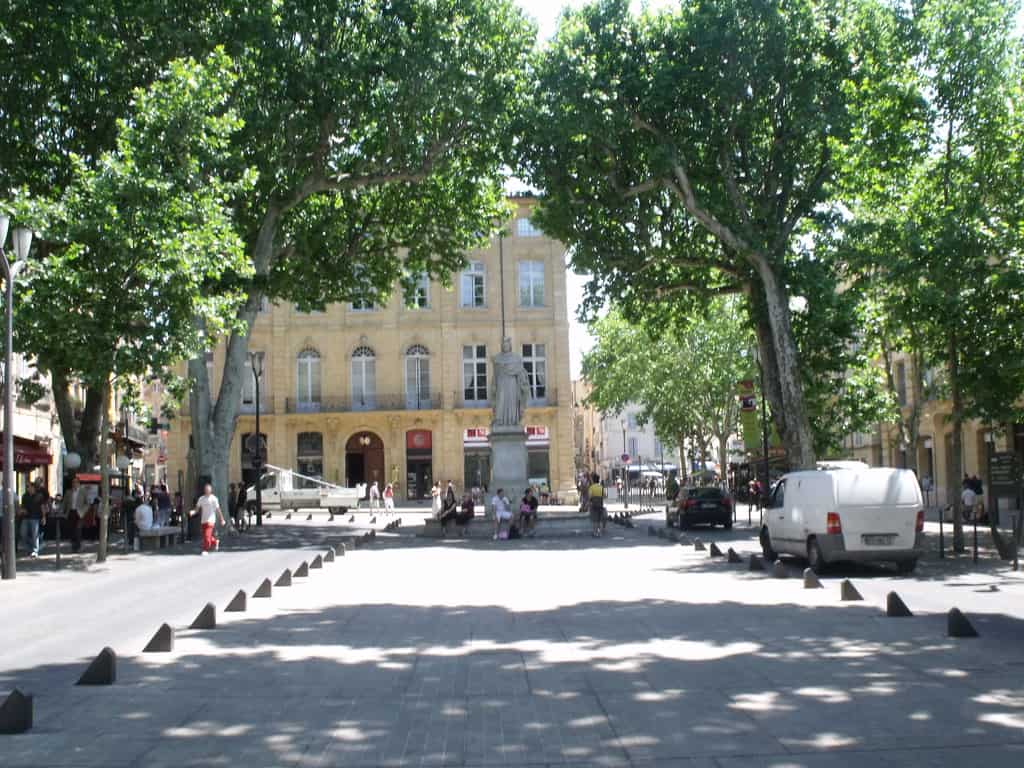
Stroll through one of Europe’s grandest boulevards.
The Cours Mirabeau is a grand boulevard in Europe.
It cuts a splash of Parisian Left Bank style and refinement beneath the sun of Provence, and it’ll be the first thing you see when you arrive.
This 440m-long, fountain-studded promenade, interspersed with Renaissance hôtels particuliers (private residences) and capped with a summary roof of lush plane trees, is the epitome of Provence’s most attractive city.
Moreover, it was constructed in the 1650s and named after Comte de Mirabeau, a Revolutionary War hero.
Hôtel d’Espagnet, built in 1647 at No. 38, a masterpiece of the Aix baroque style built for a successful textile trader who climbed to aristocracy, is one of the most impressive hôtels particuliers.
The hôtels serve as a reminder that Aix en Provence is a renowned university town with a thriving international student community (its first royal charter was awarded in 1409).
Take a stroll through Le Cours Mirabeau on your next visit to Aix-en-Provance.
Address: Aix-en-Provence, France
Le Grand Marché
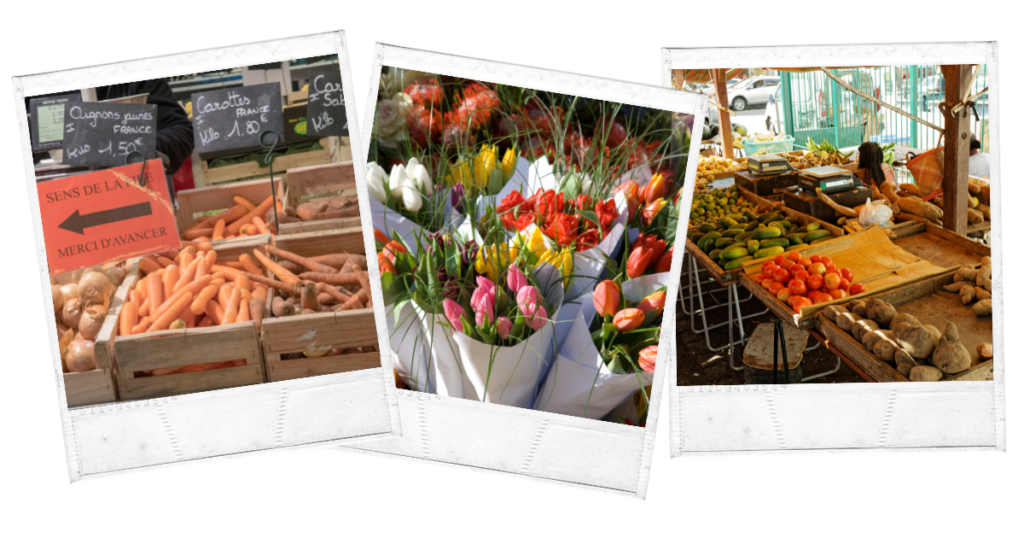
Oh, la la! Shopping galore! The markets of Aix-en-Provence welcome you to do your shopping or simply wander with your family.
In Provence, Le Grand Marché is, the city’s large market is a true institution. It is a must-see for both locals and tourists.
You’ll find everything from food, flowers, crafts, old books, flea markets, fish, and textiles, to local producers’ markets.
Also, it is a gathering spot that keeps the age-old trading customs alive and has evolved into a necessary way of life.
There are also a variety of craftspeople selling tablecloths, embroidery, and fabric by the meter.
Additionally, you can also find plates, dishes, and other cooking equipments are made of Provencal earthenware and ceramic.
And, of course, antique and second-hand dealers can provide you with odd goods and accessories worthy of a closet of curiosities.
In fact, second-hand vendors can be found on Place des Combattants en Afrique du Nord and at the top of Avenue Victor Hugo.
Stroll through Le Grand Marche to see all the best things Aix-en-Provance offers.
Address: Le Grand Marché, Aix-en-Provence, France
Montagne Sainte-Victoire
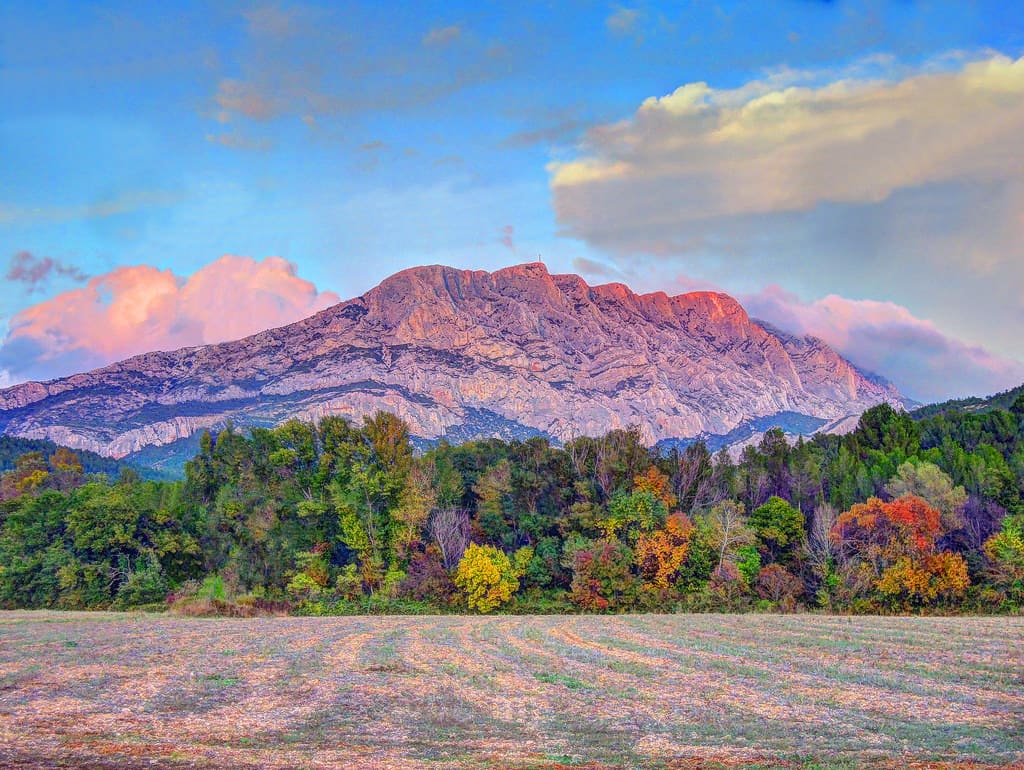
See Cézanne’s favorite muse.
The Sainte-Victoire Mountain is Cézanne’s muse and is an icon of Provence.
About 25 kilometers from Aix-en-Provence, the mountain rises to 1,011 meters and dominates the surrounding environment.
The neighborhood features lovely walkways suited for mild rambles and wildlife excursions.
Moreover, the view from the highest point, the Pic des Mouches, spreads out across the Aix region’s rolling plains.
On a clear day, the vista offers views of the Mediterranean Sea and the French Alps.
Furthermore, you can start your hike at Barrage du Bimont for a two-hour round trip to the top, where a cross has been erected.
In the middle of summer, staying near the Lac de Bimont and admiring the view of the mountain without conquering it might be just as enjoyable!
Hike up Montagne Sainte-Victoire now for breathtaking views of Provance.
Address: Provence-Alpes-Côte d’Azur, France
Musée du Calisson
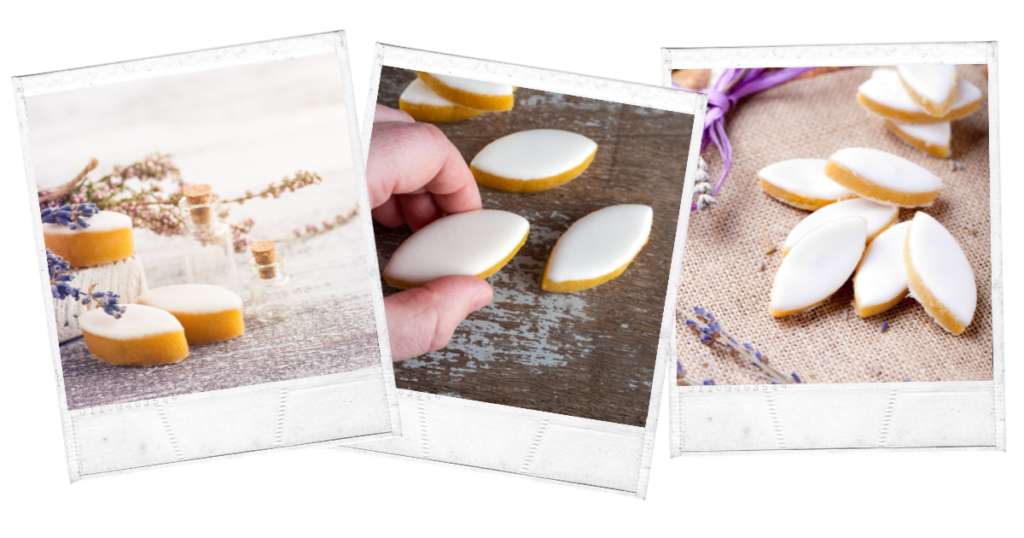
One of the best things Provance has to offer.
The Calisson of Aix is widely acknowledged as a cultural asset of the city of Aix-en-Provence and, more broadly, as one of Provence’s gourmet symbols. E
enthusiasts can continue their adventure in the heart of the Calisson’s unique flavors by visiting Roy René’s enchanting setting, which will soon be a century old.
The Confectionery Factory of Roy René, located just 10 minutes from downtown Aix-en-Provence and surrounded by more than 2 hectares of young almond trees, mixes history and modernity.
It is a state-of-the-art production area made of Castillon stone blocks called the Mediterranean Sustainable Building.
The audience is invited to observe the confectioners’ work and the stages of manufacturing the tiny “hugs of Provence,” providing a complete immersion into the intriguing and gourmet world of candy.
After a visit to the Calisson Museum, get some fresh air and learn about the history of the almond tree in Provence in 2 hectares of public gardens.
See how one of Provance’s gourmet symbols is made now.
Address: 5380 Rte d’Avignon, 13089 Aix-en-Provence, France
Musée Estienne de Saint Jean

A private residence turned museum.
The town’s history museum is the Estienne de Saint-Jean private residence, which became the museum of old Aix in 1932.
Marie d’Estienne de Saint-Jean founded the museum. Her repeated donations have resulted in collections that chronicle the history and traditions of Aix-en-Provence.
Furniture, ceramics, traditional figurines, pieces from artisan guilds, and puppets from a famous 19th-century show, the talking nativity scene, give us a real glimpse into the lives of Aix’s inhabitants.
Like the Corpus Christi procession screen, some rare items represent an ancient practice celebrated for many years.
There is also a model by G. B. Gaulli for the baptistery of Saint Peter’s in Rome; it is an exceptional piece of 17th-century Italian art.
You will also find Barthélémy Eyck’s “Annunciation,” a central panel of a 15th-century triptych, the other two panels are shown at the Rijksmuseum in Amsterdam or the Museum of Fine Arts of Belgium.
Learn more about Aix’s history now at Musée Estienne de Saint Jean.
Address: 17 Rue Gaston de Saporta, 13100 Aix-en-Provence, France
Musée Granet
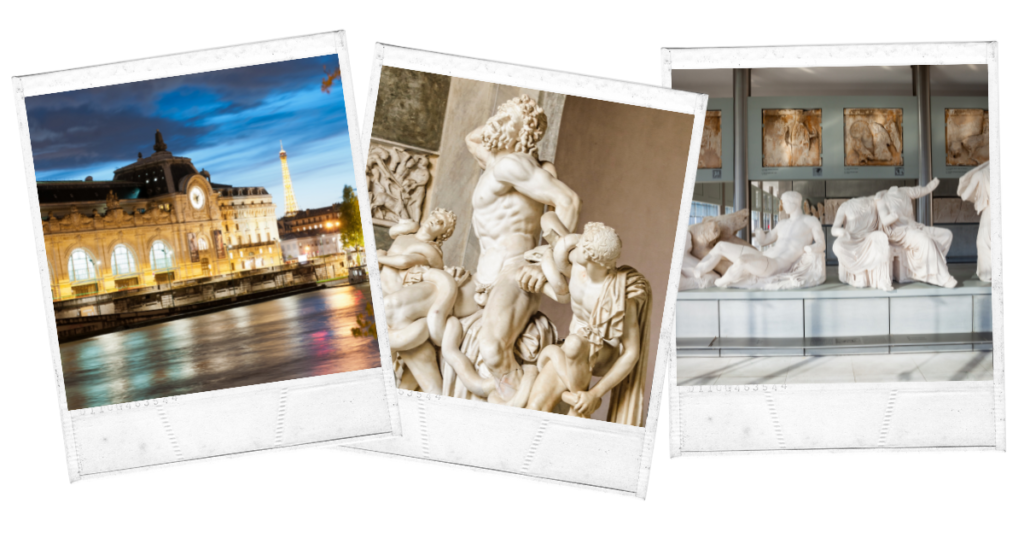
François Marius Granet, a well-known painter, was the museum’s founder, collecting art for about 200 years.
Musée Granet has a huge collection of over 12,000 works, including works by Picasso, Léger, Matisse, Monet, Klee, Van Gogh, and, most importantly, nine works by local prodigy Cézanne.
The museum is approximately a five-minute walk southeast of the Cours Mirabeau.
You can spend your lovely day with your family or a romantic museum date with your significant other!
However, there are also guided tours to try.
Moreover, admission to specific exhibits and seminars is offered for an extra cost.
All in all, this magnificent art museum is on top of the must-see attractions in France.
Visit one of France’s first public museums now, and it’s not one to disappoint!
Address: Pl. Saint-Jean de Malte, 13100 Aix-en-Provence, France
Musée des Tapisseries
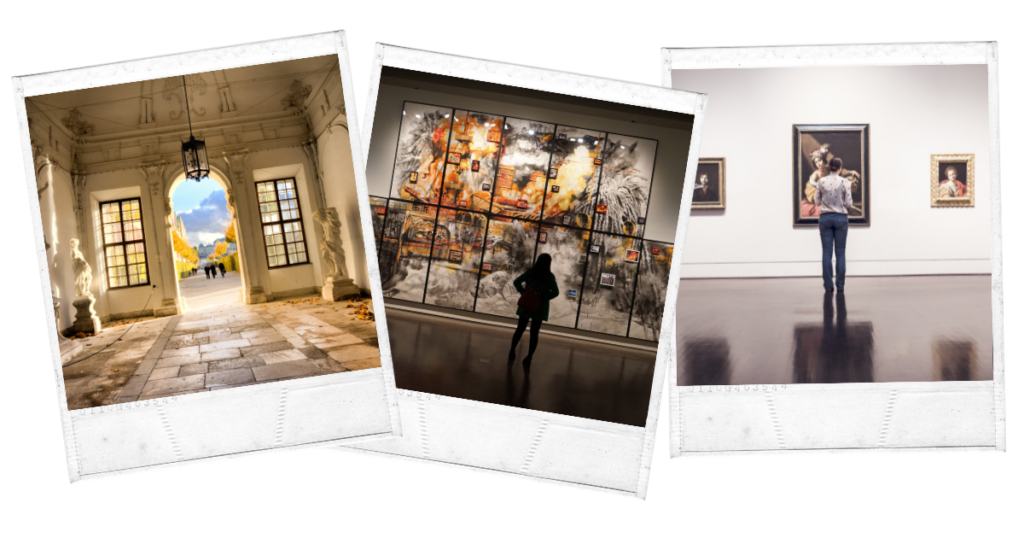
A museum filled with the most beautiful tapestries.
Musée des Tapisseries is housed in the former Archbishop’s palace’s luxurious apartments.
The tapestries made by the royal tapestry craftsmen of Beauvais are the focus of this museum. Don Quichotte, Grotesques, and Jeux Russians are examples of works from the 17th – 18th centuries.
It allows visitors to explore a diverse collection of tapestries from the seventeenth and eighteenth centuries, including the so-called “Grotesque” series, a theatrical decoration woven in Beauvais in 1689 and the world’s only version of Don Quixote’s story (1735).
Since 1979, the museum has kept collections of contemporary textile art.
It has hosted temporary exhibitions of modern and contemporary art throughout the year.
The performing arts were given their department and displays in 1998.
Bel canto, set models, working notes, and costumes for operas inspired by renowned artists such as Balthus, Derain, and Casandra can also be found.
Maquettes, costumes, furnishings, and papers on the history of the Festival of Lyrical Art are shown in a part of the museum dedicated to the performing arts.
Visit this museum now on your next trip to Aix-en-Provance.
Address: 28 Pl. des Martyrs de la Resistance, 13100 Aix-en-Provence, France
Passage Agard
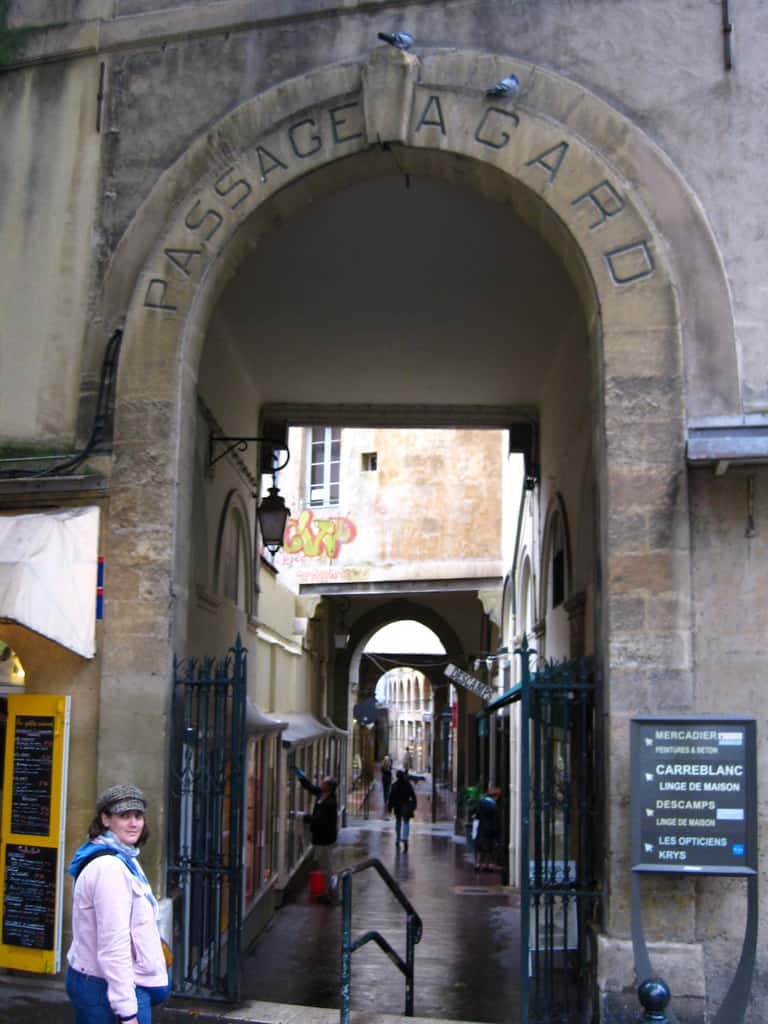
A cute, narrow pedestrianized street lined with stores and cafes.
The passage Agard connects the Cours Mirabeau to the Place de Verdun via a short lane (where you will find the courthouse).
The Rue des Carmes runs through the center of this corridor, which dates from 1846 and has various modest shops. It’s typical of the neighborhood’s narrow streets, and it’s a terrific place to get lost in the city.
The Cours Mirabeau is connected to the Law Courts by a former Carmelite monastery (Palais de Justice).
The Deux Garcons cafe, which used to be frequented by Cezanne and his associates, and the Oblates chapel, previously the Carmelite convent chapel, are located here.
The shortest and most famous road between the Cours Mirabeau and the Place du Palais de Justice was created in 1846 by Félicien Agard, who owned part of the former Carmelite convent Great. Grids keep the route closed at night.
Take a quick walk through this passage now.
Address: 13100 Aix-en-Provence, France
Pavillon de Vendôme

The most alluring of the follies inherited from the Great Century is the Pavillon de Vendôme.
The Pavillon Vendôme is the most beautiful folie that the 17th century has left.
It was commissioned by Louis de Mercoeur, Duke of Vendôme.
He was appointed Governor of Provence in 1652 by the grandson of Henry IV and Gabrielle d’Estrées.
According to legend, the prince was enamored by Lucrèce de Forbin Solliès, the “Belle du Canet,” and had this “folie” built for her.
A succession of owners succeeded him.
The Pavillon was acquired and renovated by Henri Dobler, an educated art collector, in 1906, granting it formal status.
In 1914, the Pavillon de Vendôme was the very first building in Aix to be classified as a Historic Monument.
The Pavillon de Vendôme’s double helix staircase, which dates from the early 18th century, is one of the best in the Aix series. It has a beautiful structure with ornate decorations.
The majestic Baroque effect is created by the cast-iron handrail, plasterwork, garlands, putti, and eagle sculptures.
Furthermore, it regularly offers contemporary art exhibitions, contributing to developing a dialogue between cultural legacy and modern creation.
Come and see this historic landmark now.
Address: 13 Rue de la Molle, 13100 Aix-en-Provence, France
Place de l’Hôtel de Ville

A historic place to watch the world go by.
The Aix en Provence town hall, also known as the “Hotel de Ville” in French, was constructed in two stages, the very first one in the fourteenth century and the second in 1655 and 1678.
The portraits of several Counts of Provence and Kings of France are housed in this structure connected to a grand clock tower.
Built-in 1755, the fountain in the square outside is topped by a Roman column. It serves as the square’s focal point, where many people gather to shop or simply watch the world go by.
The granary, built in 1754, contains a massive triangular-framed carving portraying a man and a woman who represent the Durance and Rhone rivers and the benefits of their life-giving waters.
A few cafés and restaurants line the area, making it a pleasant place to stop for a coffee or a bite to eat.
Relax and enjoy people watching now at Place de l’Hôtel de Ville.
Address: Pl. de l’Hôtel de ville13100 Aix-en-Provence, France
Terrain Des Peintres
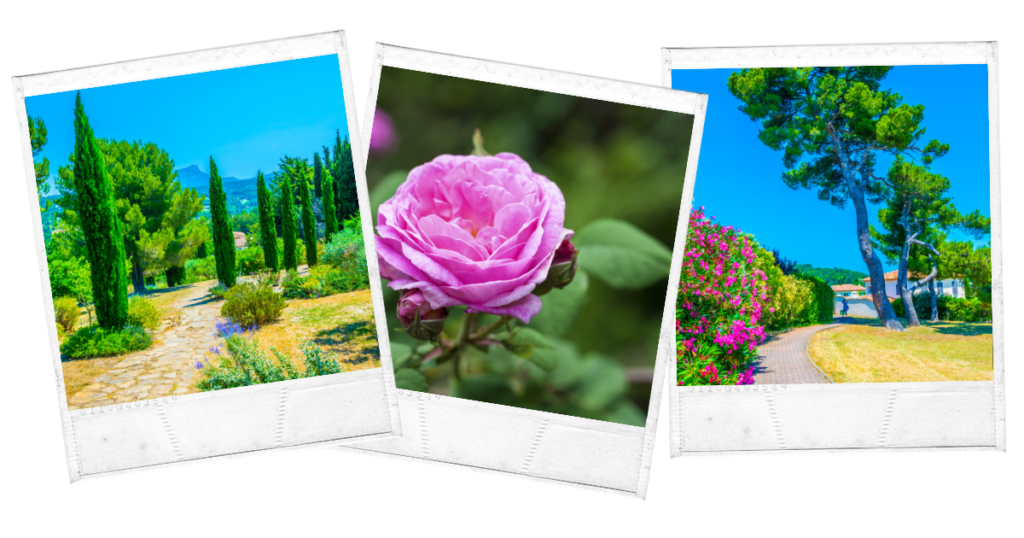
A public garden where several of history’s greatest painters worked.
The Terrain des Peintres is located on the outskirts of Aix en Provance, not too far from the famed Atelier Cezanne.
It has been conserved as a public place due to its spectacular views of the Montagne Sainte Victoire and that artist Paul Cézanne painted here frequently in later years.
You can go up the trail to a viewpoint with tranquil views of the surrounding countryside and its gorgeous mountains and examine reproductions of famous paintings painted here, which serves as an open-air museum.
Those who want to extend their stroll might use the walkway, Chemin de la Marguerite, to the Oppidum d’Entremont, about 1 kilometer away.
The Oppidum d’Entremont is one of Provence’s most picturesque pre-Roman settlements and has housed a Salyens community of Celto-Ligurians established here before the Romans arrived.
Take in the incredible sights of this beautiful garden now.
Address: 49 Av. Paul Cézanne, 13100 Aix-en-Provence, France
Vasarely Foundation
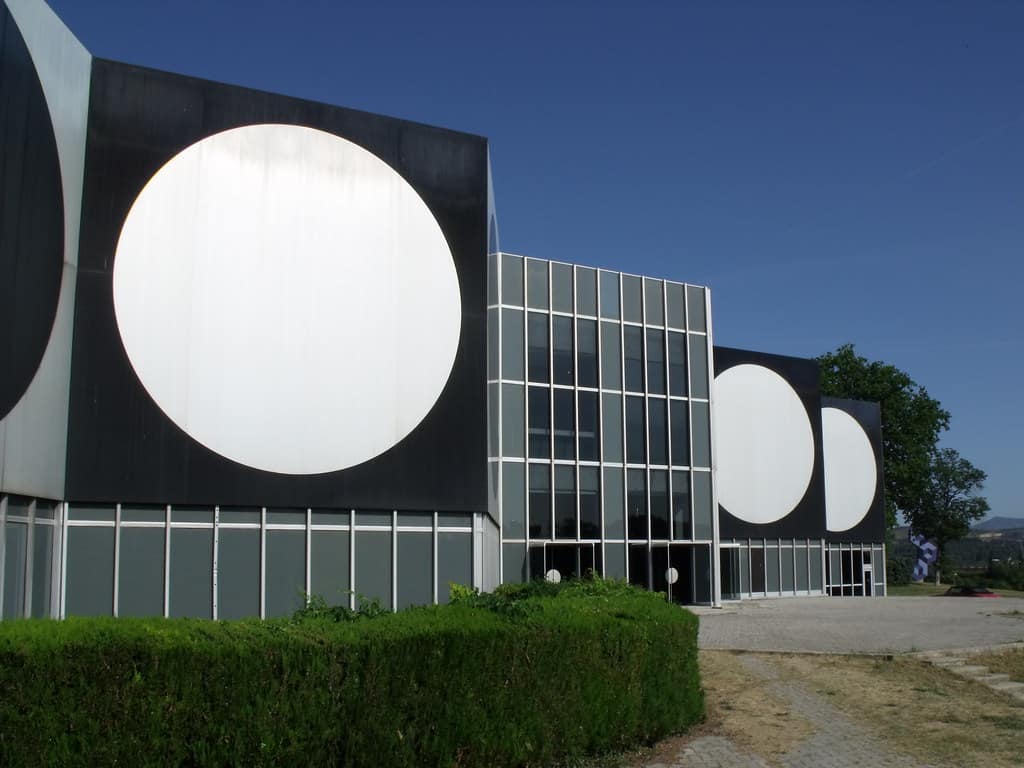
Enter the vivid, vibrant world of celebrated artist Victor Vasarely.
In the late 1950s, Victor Vasarely, a pioneering artist, humanist, and visionary, realized the universality of art and set out to make it available to everyone.
He attracts the viewer’s sight and takes them into a sensual environment where all bearings get distorted by playing with perspective.
The geometrical nature of the piece is enhanced by a variety of brilliant and vibrant colors. They appear to move and come to life when caught in this dynamic process.
Victor Vasarely became one of the most influential artists of the second half of the twentieth century after launching a new aesthetic genre known as “Op Art.”
The structure, designated as a public utility in 1971, has been selected as a historical monument.
In Aix en Provence, the Vasarely Foundation hosts contemporary art exhibitions, discussions, concerts, conferences, and creative forums with 44 different monumental works of art on display.
Overall, its architectural integrations in the middle of the lumino-kinetic structure will captivate everyone, young and old alike.
There’s undoubtedly something to see for everyone at the Vasarely Foundation.
Address: 1 Av. Marcel Pagnol, 13090 Aix-en-Provence, France
Vieil Aix
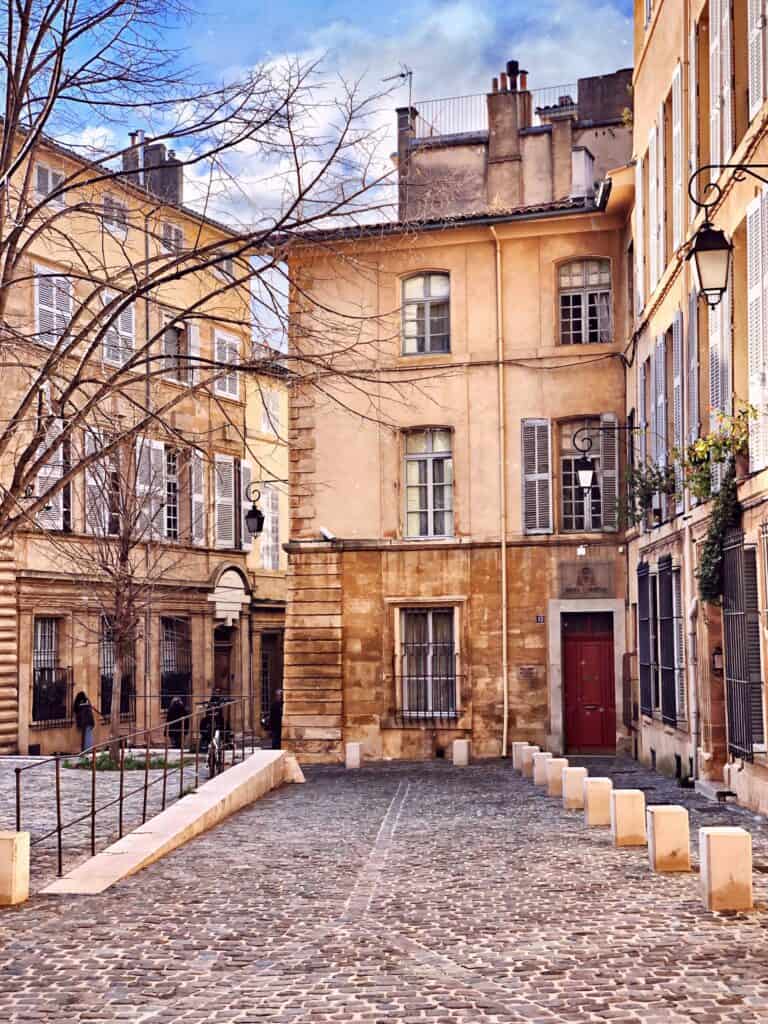
Say “bonjour” from Aix-en-Provance’s old town.
The picturesque cobblestone lanes of Aix-en-Provence’s old town transport visitors back to the Middle Ages, when protective walls guarded the city’s twisting streets.
The remains of these ramparts can still be seen on Jacques de la Roque Street.
The old Roman pool, located opposite the modern-day thermal baths’ entrance, is another historic ruin in the area.
The Cathedral (partly originating from the 12th century and erected on the site of the Roman Forum), the Town Hall, and the old belfry with its working astronomical clock.
It is all built in the 1500s on top of Roman foundations and is among the most significant buildings in the Old Town.
The Old Town comes alive three times a week with market vendors selling everything from produce to antiques.
Furthermore, visitors can sign up for a guided tour of the Old Town, which is usually popular. Visitors can learn more about the town and its history.
Visit old town Aix right now and be enchanted by the city’s allure.
Address: 7 Rue Gaston de Saporta, 13100 Aix-en-Provence, France
Quartier Mazarin
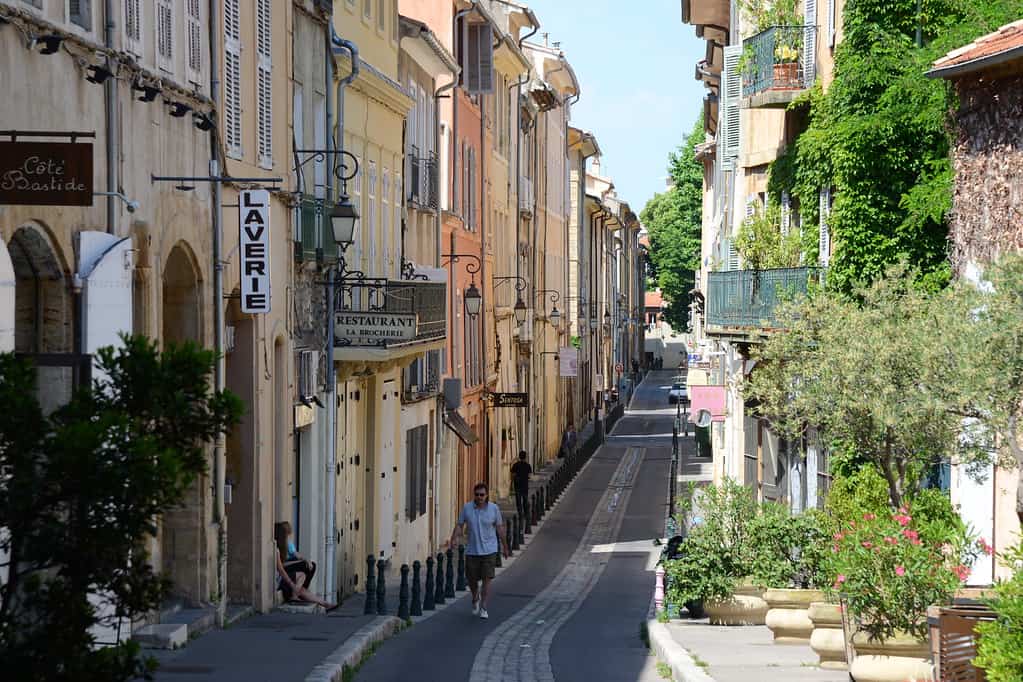
A luxe housing estate built for the bourgeoisie of the 17th century.
The Quartier Mazarin is located in the heart of Aix-en-Provence, just south of the Cours Mirabeau, the city’s primary thoroughfare.
The quartier is laid out in a grid pattern, with many hôtels, particuliers built for the nobility and wealthy merchant class.
Rue Cardinale is named after Archbishop Mazarin, who rose to the rank of Cardinal.
It is one of Aix’s most appealing streets due to its exquisite private residences.
Also, it runs through Place de la Fontaine des Quatre Dauphins, a fountain designed by sculptor Jean-Claude Rambot in 1667.
The Sainte Beaume stone forms the basin’s circular shape.
Its four dolphins recline on the waves with their fins outstretched, supporting the obelisk capped with a pinecone and illustrating the popular Baroque art of Aix’s nobility.
Moreover, the Granet Museum and the Church of Saint Jean de Malte are located on Rue Cardinale.
See all the beautiful residences as you stroll through the Quartier Mazarin.
Still unsure to make Aix-en-Provance France your next destination? Click here for why visit Aix-en-Provance, France, at least once in your lifetime here.
Address: Quartier Mazarin, Aix-en-Provance, France

